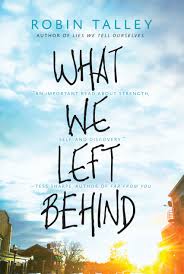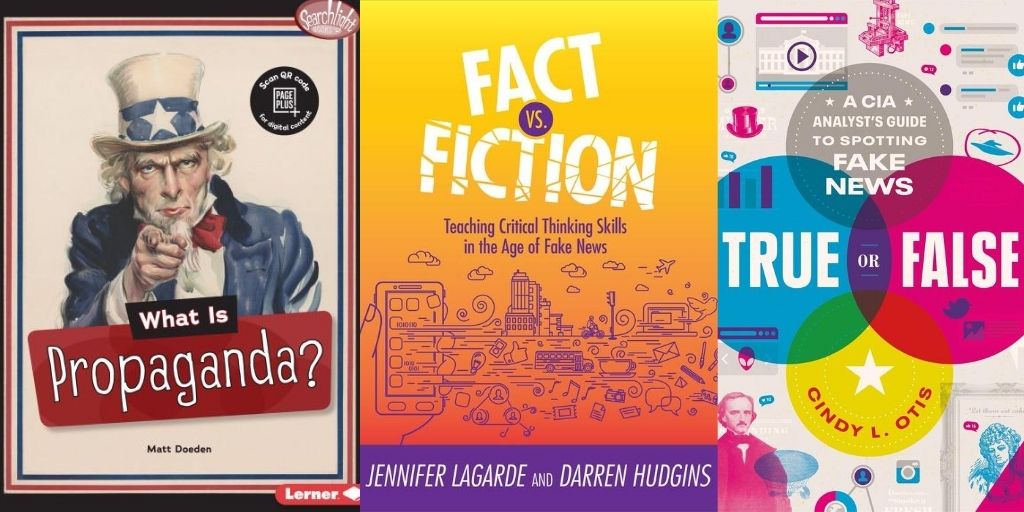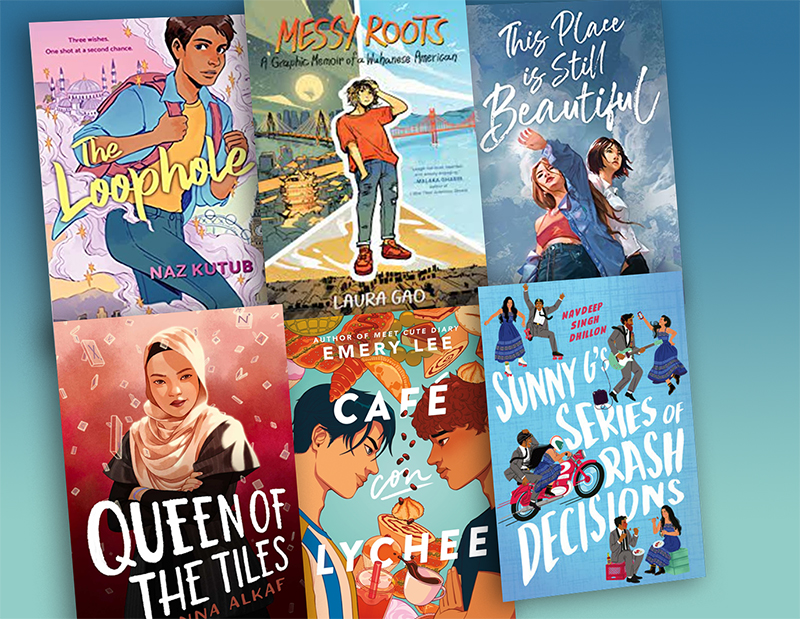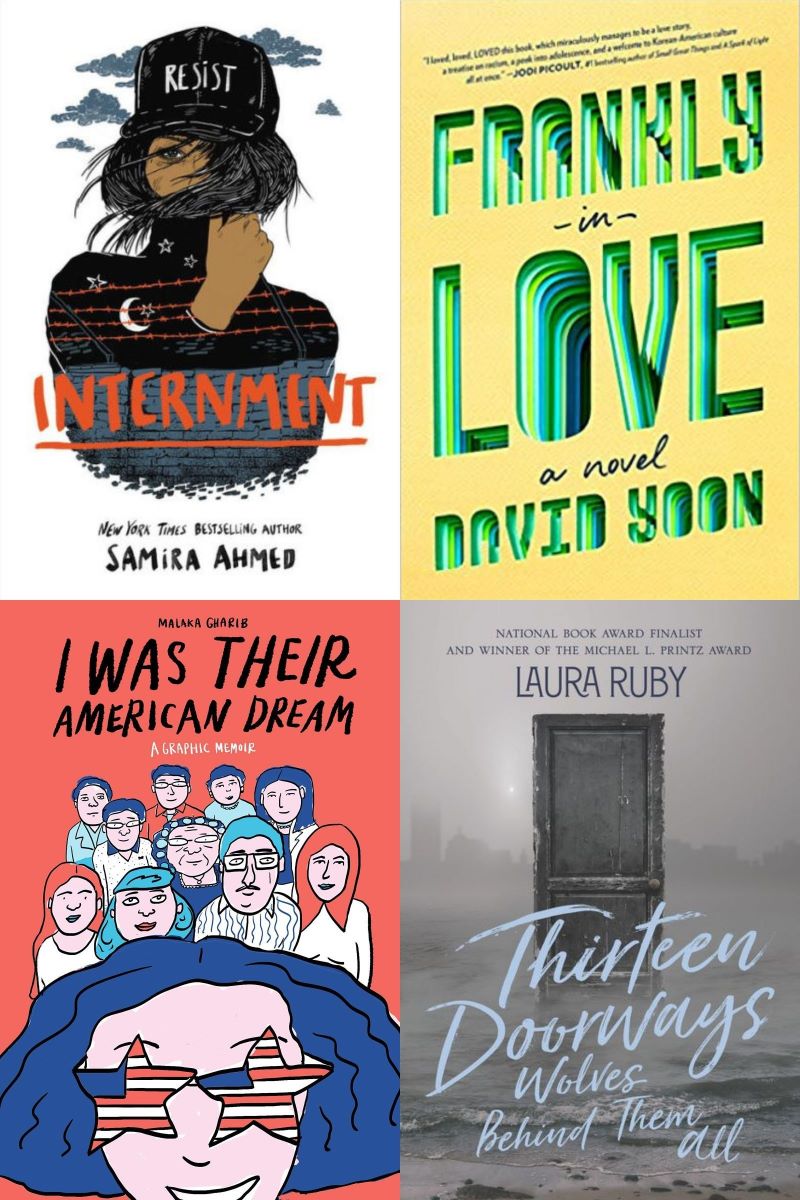Book Review: What We Left Behind by Robin Talley
 Publisher’s description:
Publisher’s description:
From the critically acclaimed author of Lies We Tell Ourselves comes an emotional, empowering story of what happens when love may not be enough to conquer all
Toni and Gretchen are the couple everyone envied in high school. They’ve been together forever. They never fight. They’re deeply, hopelessly in love. When they separate for their first year at college—Toni to Harvard and Gretchen to NYU—they’re sure they’ll be fine. Where other long-distance relationships have fallen apart, theirs is bound to stay rock-solid.
The reality of being apart, though, is very different than they expected. Toni, who identifies as genderqueer, meets a group of transgender upperclassmen and immediately finds a sense of belonging that has always been missing, but Gretchen struggles to remember who she is outside their relationship.
ADVERTISEMENT
ADVERTISEMENT
While Toni worries that Gretchen won’t understand Toni’s new world, Gretchen begins to wonder where she fits in this puzzle. As distance and Toni’s shifting gender identity begin to wear on their relationship, the couple must decide—have they grown apart for good, or is love enough to keep them together?
Amanda’s thoughts:
Here is my first and probably most important thought: Next month, Gay YA’s book club pick is What We Left Behind. Have you participated in their book club discussions? If not, you’re missing out. They hold an hour-long Twitter chat to discuss the month’s title. You can find out more information here. That said, my thought is this: I can’t wait to hear the discussion of this book. There is a LOT going on in Talley’s new book. I am super interested in hearing thoughts on this book from people who are genderqueer, transgender, nonbinary, etc.
For the purpose of this review, I’m only going to refer to the main character as T. T has a lot to say about pronouns, labels, names, and identities. T’s thoughts change on these topics—and they change frequently.
T and Gretchen got together in high school. Their relationship has been pretty rosy; they don’t fight, they’re infatuated with each other, and they know they won’t be one of those couples who breaks up in college. They’re all set to be going to Boston together—T will be at Harvard and Gretchen will be at Boston University. That plan implodes when Gretchen reveals a secret: she’s been taken off the wait list at NYU. Despite being certain that distance won’t put a strain on their relationship, it of course does, and for many reasons.
ADVERTISEMENT
ADVERTISEMENT
The story is mainly T’s. We follow T through the first few months at Harvard, where T makes a lot of new friends, many of whom are transgender. T’s identity changes often during the novel. For a long time, T identifies as genderqueer. Then T isn’t really sure if that’s accurate. Maybe the label T is looking for is nonbinary. Or maybe it’s genderfluid, or heteroflexible, gender nonconforming, gender variant, or queer. Maybe the label that suits T is transgender. These are all identities T considers during that first year at Harvard. T also stops using pronouns all together, then tries “they” as the only pronoun, then “ze” and “hir” etc. If it feels confusing and complicated to you, it is. It’s a whirlwind of T seeking the right label. Some of T’s new friends assume T is transitioning and refer to T using male pronouns. At a certain point, this feels right to T, who starts to use chest binders and even spends some time presenting as male while on a trip to London.
Throughout all of this, T and Gretchen’s relationship suffers, partially from the distance and partially from T going through so many changes and leaving Gretchen in the dark for a lot of them. This part was done very well. I loved Gretchen. Seeing how they dealt with these changes and new revelations was great. Gretchen makes it clear that she loves T regardless of T’s identity, but that doesn’t mean it’s not still incredibly confusing and stressful to Gretchen to be dating T while T is working so hard to find out who T really is.
So, those are the facts. I have many thoughts on T’s confusion and ever-changing labels, but as a straight, cisgender woman I’d rather sit back and hear the thoughts from those who are the identities T talks about. A lot of what T is constantly feeling is just a general confusion over what the right label is. Even when T tells family or friends the identity that feels most true, T pretty much instantly freaks out and backtracks, wondering if that’s really the right label, if it has to be the label now forever, and if being confused about it still makes it invalid. I love Talley’s writing, and I loved the story being set in their first year of college. Gretchen’s part of the story is smaller, but I enjoyed seeing her try to figure out who she is separate from T (though I did not enjoy her irritating and slur-using new best friend at college, Carroll), a question that many people ponder no matter how their partner changes or what identity they have.
Is this kind of a non-review review? Maybe. But I think listening to the voices from others will be more useful than any thoughts I may have. So, I’ll say this: read this book. There’s a lot to think about and talk about. Then keep your eyes open for the date of Gay YA’s book club chat about this title. I guarantee that the discussion will be lively, passionate, and educational.
Review copy courtesy of the publisher
ISBN-13: 9780373211753
Publisher: Harlequin
Publication date: 10/27/2015
Filed under: Book Reviews
About Amanda MacGregor
Amanda MacGregor works in an elementary library, loves dogs, and can be found on Twitter @CiteSomething.
ADVERTISEMENT
ADVERTISEMENT
SLJ Blog Network
Name That LEGO Book Cover! (#53)
Cover Reveal and Q&A: The One and Only Googoosh with Azadeh Westergaard
Exclusive: Vol. 2 of The Weirn Books Is Coming in October | News
Fighting Public School Book Bans with the Civil Rights Act
ADVERTISEMENT








I have been thinking about a lot of the conversations going on at Reading While White and elsewhere lately, and how, for me, an important consideration in the “who should write what?” discussion is “do you know how we talk when we’re alone?” And it’s a question with a power differential–based on my own experiences, I think people from marginalized groups have a pretty good idea of what the corresponding dominant groups say about them, because it gets said in semi-public spaces, or “I forgot you were here” conversations, or “but you’re not like THEM” conversations.
And then I read this book, and then I read Pat Schmatz’s comment here ( http://readingwhilewhite.blogspot.com/2015/10/a-matter-of-trust.html ) about the “missing spice” when dominant people write from marginalized perspectives–or, I’ll add CONTROVERSIALLY and as a co-perpetrator, review/award books outside their dominant experience.
I haven’t spent time in all-trans* spaces, so I won’t comment on that part of the book specifically. But it’s really clear, reading this book, that the author is writing from inside experience of the American east-coast academic-class queer world. (I didn’t go to Harvard or NYU, so I can’t get more specific than that.) And after reading a LOT of books by well-intentioned allies, that “fully flavoured” experience is always a refreshing break. I don’t know whether nonbinary and trans* readers got to have the same experience.
The character that has stuck with me the most, actually, is Carroll, who infuriatingly demonstrates the difference between being gay and being part of the queer community. (It’s not his fault, per se, because he grew up isolated from community and knowledge, but it’s also time for him to catch up.)
I do instinctively disagree that Gretchen’s part of the story is smaller, or that she’s not a co-main character. And there are some things that usually raise red flags for me–we learn the dead names of a lot of the trans* characters, and some pretty trope-y things happen in Gretchen’s plotline in particular–but they mostly feel like they’re in service of something intentional here.
[I don’t usually comment on books within 48 hours of reading them, which is what I’m working off of here, so I may change my mind about some of this as I continue to stew on it.]